Providing Ukraine with military support will be a mistake for the West.
One year on from the start of the revolutionary Maidan protests in Kiev that led to the overthrow of President Viktor Yanukovych and the subsequent annexation of Crimea, Ukraine is still between a rock and a hard place. In spite of the Minsk II ceasefire agreement signed on February 12, fighting raged on in the east until pro-Russian separatists captured the strategic railway hub of Debaltseve on February 18. Absurdly, the rebels argued that since the town was not included in the agreement, it should be exempted from the Minsk conditions.
With the ceasefire looking increasingly shaky, some US military hawks have started looking toward more drastic measures to deal with the Russian threat. US Secretary of State John Kerry and Republican Senator John McCain have become increasingly vocal in their support for supplying the Ukrainian army with lethal weapons to defend their territory and resist Russian aggression. Russia, meanwhile, is doubling down. It appears the stakes in this geopolitical game have just got higher.
But while US officials analyze their ability to force a change in Russia’s Ukraine strategy, the debate within Britain and Europe has tilted in the other direction.
Although former British Defense Minister Liam Fox has sided with his counterparts across the pond, claiming that we must arm Ukraine in light of the waning credibility of NATO in the crisis, William Hague, the ex-foreign secretary and close confidante of Prime Minister David Cameron, has ruled out sending any weapons to Kiev. Clearly considering the devastating effects of an ever-escalating proxy war between the West and Russia in Ukraine, Hague underlined that it had never been “our approach in any of the conflicts in recent years to send arms into those conflicts,” stressing the need for a diplomatic solution to the crisis.
Putin Won’t Cave
The fact of the matter is that arming Kiev will be unlikely to change Russian President Vladimir Putin’s heavy-handed strategy in Ukraine, and poses the risk of escalating the situation to the point of no return.
Proponents of aggressive tactics have obsessively pointed to Putin’s 2005 state of the nation address in which he declared that “the fall of the Soviet Union was the greatest geopolitical catastrophe of the century,” and have assumed that the Russian president will stop at nothing to undo this historic wrong, one former satellite state at a time.
Indeed, in such a case, the only logical course of action remains to deploy a deterrence strategy — i.e. arm Ukraine and increase the costs of the conflict for Russia — in hope that Moscow can be coerced into folding its hand.
However, this simplistic view misses the alternative – a more compelling “spiral model,” applied when a country’s perceived aggressive tactics are driven by insecurity or fear, and not by territorial revisionism.
As Stephen Walt rightly pointed out, given Putin’s increasing concern over Russia’s core strategic interests in the neighborhood and the menacing feeling created by NATO’s expansion and the US interventionist policy in the Middle East, escalating the situation in Ukraine by providing the government with weapons will do more harm than good.
Similarly to the current sanctions regime, raising the costs of military involvement is unlikely to make Putin retreat from his current position, given the strategic importance of Ukraine and his willingness to pay a much higher price than the West to maintain its grip on Kiev.
By attempting to fight Russia’s fear and insecurity over its borders with further aggressive behavior, the West risks “triggering an action-reaction spiral of growing hostility,” prolonging a war that will continue to result in deaths, deteriorate Kiev’s economic standing and result in ever more painful conditions for Ukrainians themselves. So far, over 80% of Russians view the United States negatively, and 42% consider it “hostile,” according to a recent poll by the independent Levada Center – a rebuke to the idea that Putin can be toppled by an upset population.
Putin’s goal is to keep Ukraine out of NATO and transform it into a buffer state — a bridgehead between the West and East. And since the Kremlin has approached this crisis with a mallet, all future problems will look like nails. No, the solution is not pumping millions in Western equipment to a clearly incapable Ukrainian army, but to revive and implement the Minsk II ceasefire.
A Ukrainian Buffer State
Under the current agreement, Kiev has to grant the separatist regions autonomy and special territorial status, provide amnesty for the separatists, while also restoring the region’s currently frozen social and financial benefits. Should these conditions be met, and a new Ukrainian constitution passed by the end of the year, Kiev should regain control over its eastern provinces. But as the Debaltseve debacle showed, the road to peace will be hard to tread.
While this second attempt at reconciliation hardly appears to be the enticing path to victory Ukrainians had been hoping for, President Petro Poroshenko has himself expressed similar solutions to the crisis in the past. The Ukrainian president has quietly toyed with the idea of giving Donbass the status of a Special Economic Zone (SEZ) as a long-term solution to the country’s declining economic and security situation.
According to Oleksandr Klymenko, Ukraine’s former tax and revenues minister, such an initiative would “leave intact the territorial integrity of the state while recognizing the east’s traditionally distinct regional identity, and give Donbass a genuine strategic importance as a bridge between Europe and Russia.” Indeed, the region has enormous economic potential and is the country’s traditional industrial heartland that could lift Ukraine from its economic quagmire, were it transformed into a magnet for investment.
Just like Greece, Ukraine cannot depend forever on the largesse of foreign aid and, therefore, all help must be doled out with the final goal of restoring the country’s ability to grow on its own. The Minsk II agreement offers a clear roadmap with a fixed timeframe – Ukrainian policymakers should take the long view here and propose sensible solutions that would give Donbass a renewed sense of purpose. Guns are not the way out, and it won’t be guns that will finally give Ukraine its sovereignty back.
We bring you perspectives from around the world. Help us to inform and educate. Your donation is tax-deductible. Join over 400 people to become a donor or you could choose to be a sponsor.
The views expressed in this article are the author’s own and do not necessarily reflect Fair Observer’s editorial policy.
Photo Credit: Inna Sokolovska / Drop of Light / Shutterstock.com
Support Fair Observer
We rely on your support for our independence, diversity and quality.
For more than 10 years, Fair Observer has been free, fair and independent. No billionaire owns us, no advertisers control us. We are a reader-supported nonprofit. Unlike many other publications, we keep our content free for readers regardless of where they live or whether they can afford to pay. We have no paywalls and no ads.
In the post-truth era of fake news, echo chambers and filter bubbles, we publish a plurality of perspectives from around the world. Anyone can publish with us, but everyone goes through a rigorous editorial process. So, you get fact-checked, well-reasoned content instead of noise.
We publish 2,500+ voices from 90+ countries. We also conduct education and training programs
on subjects ranging from digital media and journalism to writing and critical thinking. This
doesn’t come cheap. Servers, editors, trainers and web developers cost
money.
Please consider supporting us on a regular basis as a recurring donor or a
sustaining member.
Will you support FO’s journalism?
We rely on your support for our independence, diversity and quality.


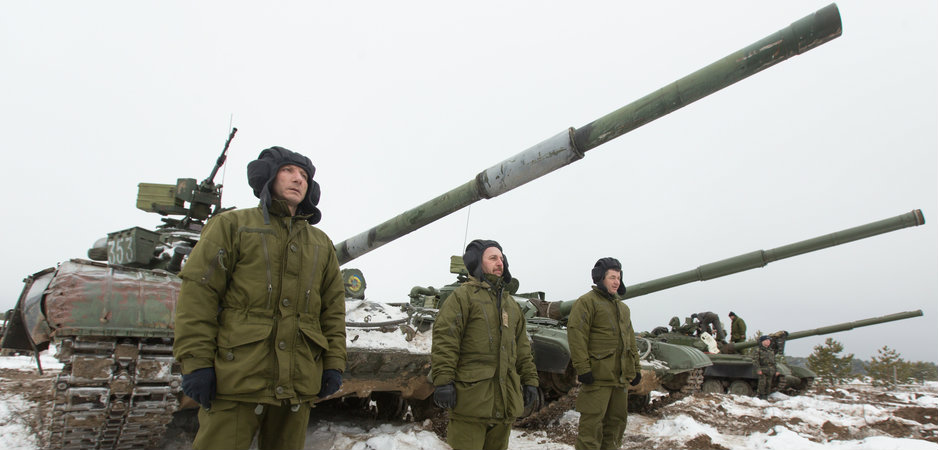

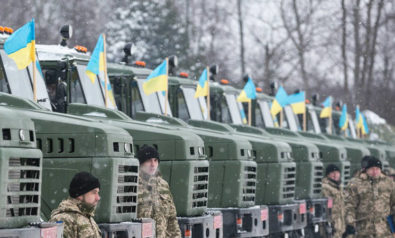

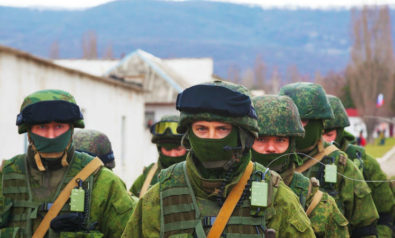
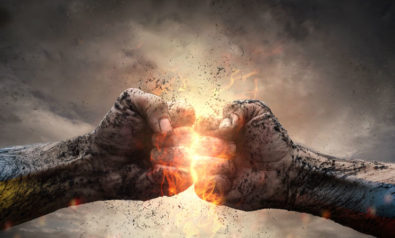
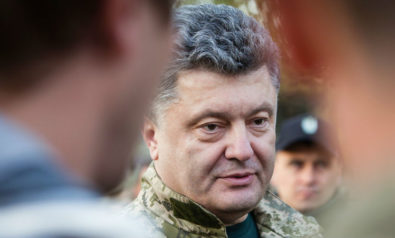
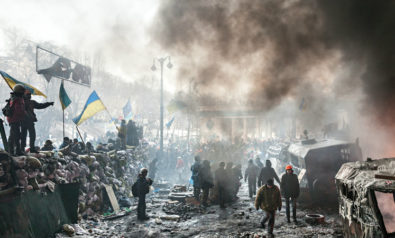


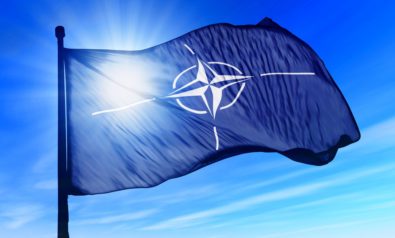

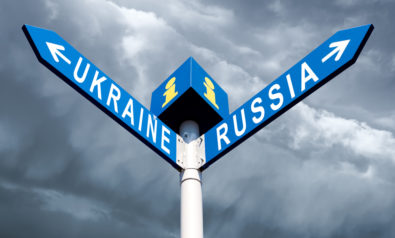
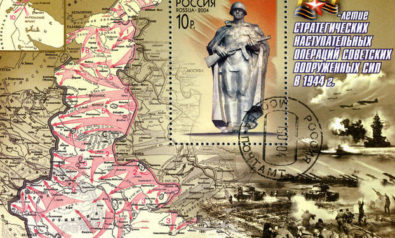
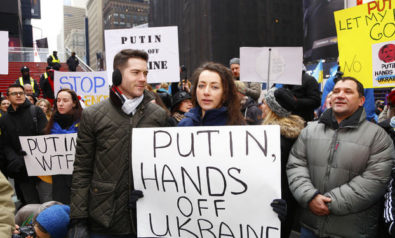

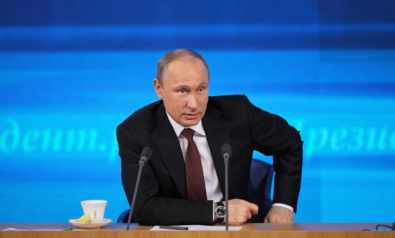
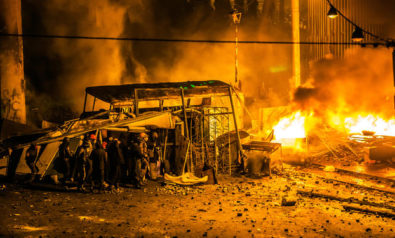

Comment
The secessionist Donbass region, whose little army has repeatedly thrashed the invading Ukrainians in battle, will not make any political settlement with Kiev as long as Nazis hold positions of power there. They will NEVER agree to live under fascists. There can be no end to the Ukraine crisis without wholesale regime change in Kiev and a thorough process of de-Nazification of that society. The hard lesson of the Second World War – that the only good Nazi is a dead one – has to be learned all over again, it seems.